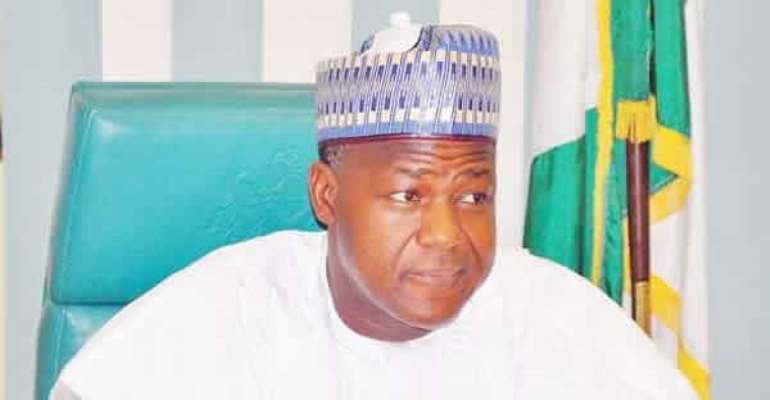Lawmakers push for financial autonomy for NASS, INEC, judiciary

The House of Representatives is pushing for financial autonomy for the National Assembly, State Houses of Assembly, Federal and State Judiciary as well as the Independent National Electoral Commission (INEC) and it's State version.
The lawmakers have also waded into the resource control controversy by commencing the process of granting States the control of mineral resources in their domain.
This followed the second reading of a bill sponsored by Aminu Shagari (APC, Sokoto) who said the alteration of the 1999 constitution would place the Federal and State legislature, the judiciary and INEC on first line charge.
According to him, the two arms of government and INEC would no longer have to rely on the Executive for their finances if they truly want to carry out their statutory responsibilities independently.
The bill is seeking to alter Section 81 of the Constitution by adding two new sub-sections whereby 'The President of the Senate and the Speaker of the House of Representatives, the Chief Justice of Nigeria and Chairman, Independent National Electoral Commission shall cause and laid before each House of National Assembly, at any time in each financial year, estimates of the revenues and expenditures of the National Assembly, the judiciary and the Independent National Electoral Commission respectively'.
The implication is that the heads of expenditures, proposed for the benefit of the National Assembly, the judiciary and INEC would henceforth be charged upon the Consolidated Revenue Fund.
Consequently, their money bills would be known as Consolidated Charge Fund (National Assembly) bill, Consolidated Charge Fund (Judiciary) bill and Consolidated Charge Fund (INEC) bill.
The bill is also seeking to delete Sub-section 3 of the constitution and replace it with a clause whereby any amount standing to the credit of the National Assembly, ,Judiciary and INEC shall be paid and disbursed directly to the Clerk of the National Assembly, National Judicial Council and Chairman INEC respectively for disbursement and management.
Alteration of Section 121 was meant to effect same changes at State level.
'The essence of the alteration is to allow the legislature, the judiciary and the Electoral Commission at Federal and State prepare their estimates and present it before the Assembly.
'This will allow them to have their budgetary allocations disbursed directly to them.
'The intent of this is to truly make them independent in carrying out their statutory responsibilities and eliminate chances of being compromised.
'It goes without saying that they cannot be independent if they go cap in hand to the Executive every time for thier allocations,' Shagari said.
Similarly, the Minority Leader Leo Ogor (PDP, Delta) in his bill for an Act to alter the 1999 constitution to vest the control of the revenues derived from minerals, mineral oils and natural gas, under or upon any land in the State of the Federation, argued that the alteration was to relief the Exclusive List of some unnecessary burden while freeing up States to unlock their potentials.
He also said that the diversification of the economy drive of the government would become meaningful as States would henceforth have the benefit of concentrating on their individual strengths in production.
He said: 'Nigeria is blessed with natural resources and there is no State that does not have natural resources they can depend on but monthly allocations from the Federation Account has made everyone lazy.
'If the overloaded Exclusive list is freed up and the Federal government allowed to concentrate on security and the most critical issues, then the States would have the opportunity of specialising in the production of natural resources at their disposal.
'If States would have to give a percentage of the earnings from their resources, every State would grow, if greater opportunity is provided for the States to manage their resources, the economy would grow. This is the foundation for diversification'.
Emmanuel Oker-Jev, said the bill must be supported because it was aiming to accomplish what the 2014 National Conference failed to do on resource control.
The two bills scaled second reading after being put to voice vote by the Speaker, Yakubu Dogara who referred them to the special ad hoc Committee on the review of the 1999 constitution.
